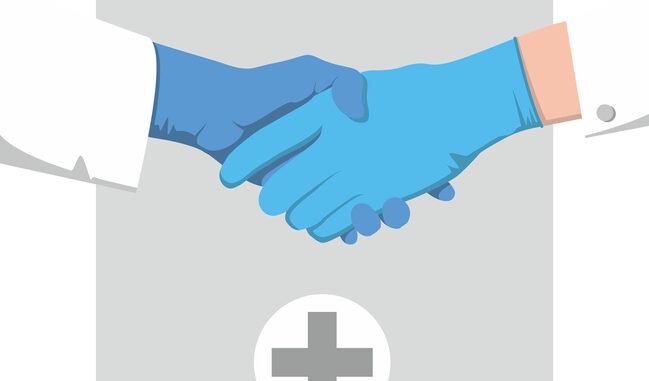
GPs who are starting a new role in a new country may have to adapt to new ways of living and working and, most importantly, communicating
It can take time to settle into a new country or workplace; making sure that GPs who are new to the UK can communicate clearly and effectively with patients and colleagues is a great place to start to help them as they begin to navigate their new role and surroundings. When they are caring for a patient, you should encourage the new GP to:
- Get to know the patient – they could ask some get-to-know questions to build a relationship and, when the patient is comfortable, make eye contact to let them know they are listening.
- Work in partnership with the patient – get the GP to involve the patient in decisions about their healthcare, and listen to their opinions.
- Make sure the patient has understood what has been said to them – encourage the GP to ask the patient if everything is clear or if they would like anything explained to them again.
They must also have an understanding of patient autonomy. You must make sure that a GP who is to your practice:
- Asks the patient’s consent before any investigation or treatment takes place.
- Involves the patient in discussions on their care.
- Provides sufficient information, clearly and accurately.
- Respects patients’ advanced care decisions.
When the GP is communicating with their colleagues, you can prompt them to:
- Get to know their team members – making the effort to know the names of their colleagues can encourage them to get to know the new GP.
- Maintain good relationships – they will be working in interdisciplinary teams, so it is a good idea to make an effort to maintain good relationships with all team members.
- Tidy up post procedure – team-working is crucial so making the effort to tidy up will be appreciated and is likely to be returned in the future.
- Offer thanks – be proactive, say thank you after a ward round or before they go home.
- Be direct – written and spoken communication is taken at face value.
- Make the effort to talk about things outside of work – keep it light-hearted.
They must also consider how to communicate with more senior colleagues. You should urge the GP to:
- Ask senior colleagues how they would like to be addressed. Use first names rather than adding ‘doctor’ to their name if they introduce themselves on a first name basis.
- Ask senior colleagues for help and guidance – it is okay to do so and is a part of learning.
- Clarify any instructions that have been given, and confirm back all the instructions as you understand them.
Communication is key as a GP and, for those new to the UK, can be a great tool to help build relationships with patients and colleagues.


Be the first to comment